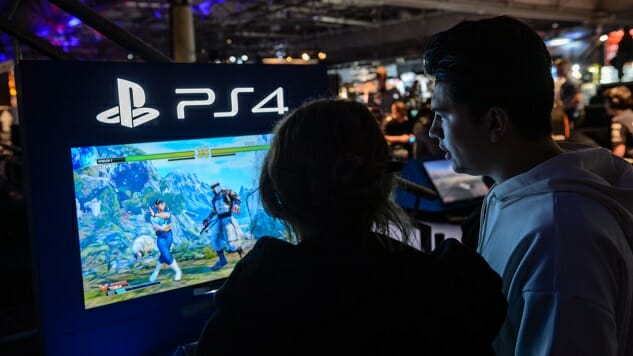You Can Care About Games Without Caring About “Gamer Culture”
A Periodic Reminder
Photos courtesy of Getty Images Games Features Culture
I haven’t watched your Twitch channel. I probably haven’t listened to your podcast. I have been to enough esports events to know that I’ll likely never become a true fan of esports. When you ask me if I’ve seen your LP I get confused for a second because an LP is a record, a long player, an album’s worth of music. It’s not somebody else playing a videogame.
Videogames can be great. I make my living off of them. But I have little personal interest in any of the miscellaneous business that clusters around videogames and has been fashioned into a games-focused lifestyle industry. I don’t personally care about so-called “gamer culture,” and I have some good news for you: you don’t have to care about it, either.
This is an old argument, I realize. But it’s worth repeating every so often. You can love games, play them every day, and even pursue a career in making or discussing them, all without turning games into the central pillar of your identity. You are more than what you buy, more than the media that you consume, and you don’t have to recraft your entire lifestyle to reflect pretty insignificant choices about your free time.
If you want to do that? That’s fine. People should love things and should be into the things that they love. If that means videogames above all else for you, that’s a totally valid choice. Remember that not everybody who cares about games will care about them in the same way as you, though. Remember that choosing to play games, and choosing to make that one of the defining characteristics of your life, doesn’t make you special, or make people who aren’t as devoted to games as you somehow inferior or worthy of condescension. Remember that games aren’t your private club, and that anybody, no matter what they look like or where they come from or how they talk and think about games and life itself, is welcome into this hobby.
As with a lot of hobbies, there’s a pressure to keep up on all aspects of the medium when you get into games. You’ll like a game, wind up talking to people about it online, see how much other people play it or talk about it, maybe get into one of the more popular community sites through that game, and then eventually feel the need to keep up with not just that one game but the general conversation about all games. You can fall into the trap of playing games not necessarily because you’re enjoying them but because you feel the need to keep up on every major release. People are playing Monster Hunter: World, so you have to play Monster Hunter: World. People have opinions on Dragon Ball FighterZ, so you need to have an opinion on Dragon Ball FighterZ.
You don’t need to have an opinion on Dragon Ball FighterZ, unless it’s somehow part of your job, and don’t let anybody convince you otherwise. Congratulations!
Everybody should have hobbies, and playing videogames can be a great one to cultivate. Notice I said “hobbies,” though, and not “hobby.” That’s a plural there. For me, diminishing my other interests to focus primarily on videogames is unthinkable. Don’t rush to cut yourself off from the wide range of experiences that the world has to offer in single-minded pursuit of some kind of gamer ideal. Elevating one hobby to the exclusion of all others might make you an expert in that one field, but it also might prevent you from exploring other aspects of life and other subcultures that you might find power in. It can prevent you from being a well-rounded person with a broad base of knowledge and experience.
It can also have a more nefarious outcome. Defining one’s self by a love for games, and letting that love dictate how one views the culture and world around them, has drawn a certain subset of videogame fans down a wayward path that equates their entertainment decisions with the inalienable identities others are born with. You don’t have to spend a lot of time poking around the games internet to find mysteriously aggrieved players acting like “gamers” are somehow a slighted minority whose rights need to be protected. You can find gamers and academics and supposed journalists who claim that their main political concern is videogames, who act like the most pressing problems facing their lives involve videogames and the freedom to treat other people who play games any way they see fit. You can find customers who identify so strongly with their purchase history that any perceived slight can justify all manner of incivility and cruelty towards the people they view as their enemies. You can find consumers whose devotion to exploring fictional worlds have separated them from their responsibilities to the real world that they live in.
That’s the unhealthy side of gamer culture. That’s the part of this hobby that tries to exclude others, that tries to structure it around not just enjoyment of the games in question, but resentment and defensiveness about the hobby itself. Excitement doesn’t always lead to obsession, and obsession doesn’t always curdle into unhealthy zealotry. You can’t reach that point without starting down that road, though, so take heed unless your passion turns into something darker.
Garrett Martin edits Paste’s comedy and games sections. He’s on Twitter @grmartin.